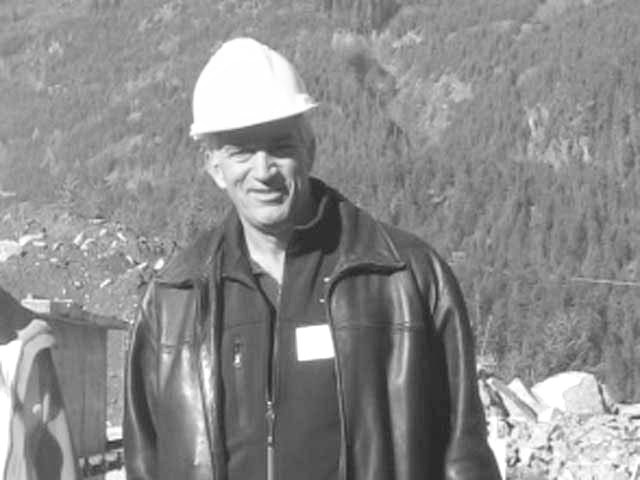Eric Martin has retired as the vice president of Vancouver's Bosa Development Corporation but he's still working for a dollar a year for Whistler.
That's what he has been paid these past seven years to take charge of the $161 million Olympic athletes' village, which turned into Cheakamus Crossing neighbourhood for 800 residents.
As he hangs up his 24-year development hat as vice president of Bosa, Martin will remain president of the Whistler2020 Development Corporation (WDC).
"It's something I really love doing," Martin explained. "We've got a little more to do."
To build the athletes village, Whistler had a cash influx from partners as well as a $100 million loan from the Municipal Finance Authority (MFA). At the end of the year that loan was paid down to roughly $1.3 million. A further $15 million is still owed to municipal reserves. That will be paid down once the MFA loan is cleared.
The board of the WDC will be reviewing the timeline of how that reserve loan is paid down at its January board meeting.
On the eve of his retirement from Bosa Whistler's mayor thanked him for his work in the community over the years.
"Your volunteerism, commitment and dedication to the community have not gone unnoticed," wrote Nancy Wilhelm-Morden.
"Staff have shared that while you are highly-respected in the development world, you are also one of the most approachable, sincere and generous people they have had the pleasure of working with.
"We thank you for all that you have done to make Whistler a better place to live, work and play."
Martin has had a hand in several developments in Whistler, most notably the ice rink at the Meadow Park Sports Centre, where he led the project management, coming in at the promised budget of $5 million.
"I've been told that you led the project and worked with the contractors to stay on budget even after having to deal with really poor soil conditions, which saw the piles driven into the ground to a depth of 125 feet!" said Wilhelm-Morden.
Though he may be retiring from Bosa, Martin is keeping his hand in several projects. He is part of Michael Audain's advisory committee working to build a new art museum that will house pieces of Audain's personal BC collection in Whistler.
Economic impacts of 10 festivals studied in 2013
Whistler will be measuring the economic impacts of ten events in the coming year.
Called Economic Impact Assessments (EIA), the studies help in the strategic planning for the municipal Festivals, Events and Animation — a $2.6 million program that supports original programming, third party events and animation in the village.
It is not yet clear which ten festivals will be studied but WinterPRIDE, Whistler's annual gay ski week, is the first on the assessment list.
"The EIAs provide a detailed assessment of the true impact of different events on Whistler's economy," said James Buttenshaw, manager of research for Tourism Whistler. "All EIAs are conducted with the same approach, thereby standardizing the measurement of the impact across the local events.
"Accurately understanding the economic impact allows for more informed decisions to be made about which type of events deliver the greatest return on investment for the local economy."
The Canadian Sport Tourism Alliance (CSTA) will be doing the work.
In the past year several years, assessments have been done on local festivals, including the Whistler Film Festival in 2011, Cornucopia in 2011, RBC GranFondo in 2010 and 2011 and the Whistler Half Marathon in 2011.




